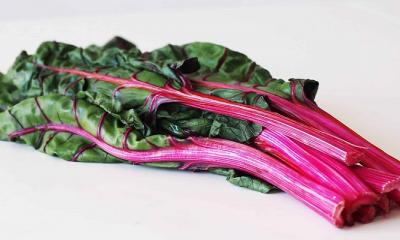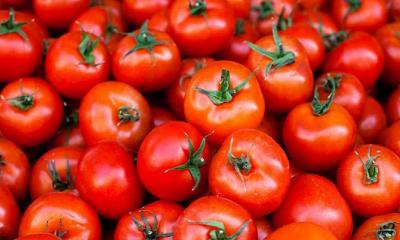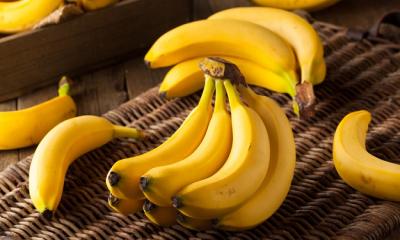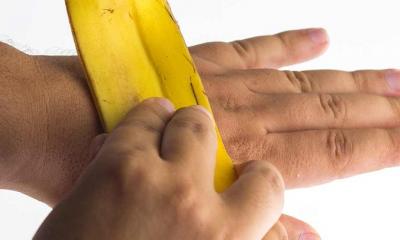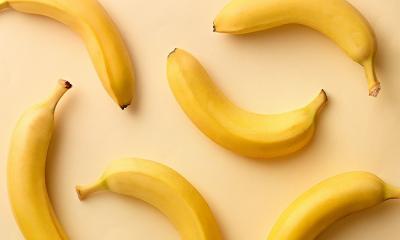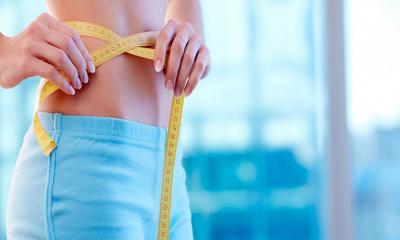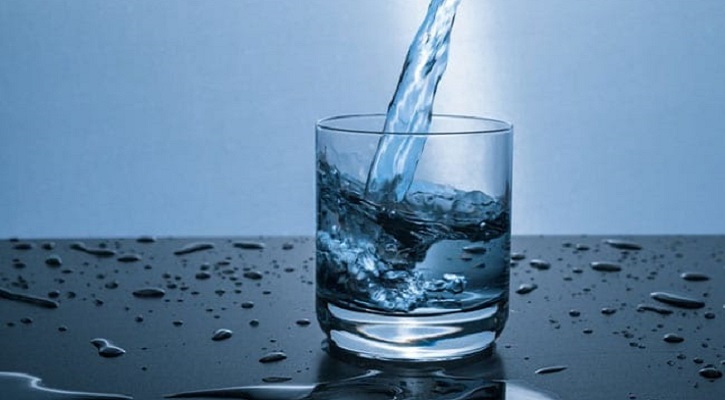
How to Lose Water Weight Fast, According to Dietitians?
- Women`s Corner
- September 16, 2022
When you notice pounds pile on overnight, you could be dealing with water weight. And, if you suspect that’s the case, it’s understandable to start searching online for how to lose water weight ASAP, if not sooner.
And all this can be oh-so-frustrating when you’re cutting calories and still seeing the scale creep up. But the truth is that your weight fluctuates day to day, so those pesky pounds could be a sign that you consumed too much salt one day, or your diet was carb-heavy another day. Hitting up the drive-thru often or eating too many processed foods are reasons you might be tacking on water weight.That said, there are steps you can take to lose water weight. We spoke to four dietitians about the easiest and safest ways to shed the extra H2O.
How to lose water weight?
There are a few possible ways to lose water weight. Those include:
Slash the sodium: “Salt acts like a magnet to water in your body, hence the water retention. Other foods may make you feel bloated but don’t confuse the two sensations. Bran products, broccoli, cauliflower, cabbage and more cause that full feeling,” says Bonnie Taub-Dix, R.D., creator of BetterThanDieting.com and author of Read It Before You Eat It: Taking You From Label to Table.
Read More: Sloppy Joe Casserole
Even if you think you’re well under the daily sodium recommendation of 2,300 milligrams per day, you might be underestimating. In contrast, the body needs 200 milligrams of sodium to function. “Salt is hidden in so many things, especially at restaurants because it’s a tremendous flavor boost for very little money,” Taub-Dix adds. In fact, more than 70 percent of dietary sodium is found in restaurant dishes, fast foods, and packaged snacks.
Some people are also more salt-sensitive than others. So how do you know? Taub-Dix recommends taking a look at your fingers about an hour after eating salty foods. Are your rings leaving indentation or do they feel slightly inflamed? If you notice swelling in your hands, it might be a sign that you’re salt-sensitive.
4 Ways to Reduce Your Salt Intake:
Cut back on carbs: Just like salt, “carbohydrates can cause water retention. When you consume carbs and don’t use them for fuel right away, your body converts them to glycogen. This is stored in the muscles for energy,” Amy Shapiro, R.D., founder of Real Nutrition in New York City, explains.
Read More: Stuffed Cabbage
Approximately one percent of your muscle mass is straight glycogen, while eight percent of your liver’s weight is glycogen. For every gram of glycogen stored in those areas, you gain about 2.7 grams of water along with it. To help you practice better carb portion control, consider carb cycling, a hybrid of high- and low-carb dieting. The idea is that you eat fewer carbs during recovery or rest days and increase your carb intake for days when you’re doing a tough workout. This way of eating helps promote muscle growth and fat loss.
How to Cut Down on Carbs at Every Meal?
Drink more water: When you consume too much salt, your cells drink up and hold on to every last ounce of water they can. Their thirst tricks your body into thinking it’s not thirsty (even when it’s actually parched). So if you think you may have overindulged or had a high-sodium meal, pour more H2O into that glass. Shapiro adds even more evidence to the pro-water campaign: “If you don’t drink enough water, the body holds on to water to prevent severe dehydration.” A study in the journal Obesity that found that drinking 500 milliliters, or 17 ounces, of water before a meal tricks your body into losing more weight naturally.
Pop a magnesium supplement:
Fact: The first day of a woman's period is when she retains the most water all month. As the cycle moves along, the hormones that control water retention bounce back to normal. “So many people get discouraged by the scale, but that’s a measure of many things happening in the body, not just weight. Especially for young to middle-aged women, you might feel puffy before or during your period,” Taub-Dix says.
A magnesium supplement can help reduce the impact of the hormone-induced puffiness, Shapiro says. A Journal of Women’s Health study suggests that a 200-milligram magnesium supplement during menstruation can help lessen swelling, stomach bloat and weight gain.
Read More: Pretzel-Crusted Chicken with Broccoli
However, you don't want to use water pills, aka diuretics, to lose water weight without talking to your doctor first. Sometimes, doctors will prescribe diuretics to people with high blood pressure to help reduce the amount of salt in the body. But diuretics come with a case of side effects, such as dizziness, headaches, muscle cramps, and dehydration, so be sure to consult your MD, especially if you're taking certain medications.
Add more potassium to your diet: Think of potassium as the yin to sodium’s yang. Research in the American Journal of Kidney Disease links higher dietary potassium with less sodium in the kidneys, and thus, reduce water retention and blood pressure. Intake recommendations are 4.7 grams of potassium per day, but the average American woman only scores half of that (2.4 grams), according to a dietary reference intake report. Reach your daily quota with these 13 delicious foods that have more potassium than a banana.
Beyond burning a few calories (about 100 calories in 20 minutes for a 150-pound person), adding steps to your schedule can coax your cells into shedding water. “Avoid sitting or standing in one place for too long because this can cause your tissues to hold and retain water,” Shapiro says. Conquer desk drain by setting a reminder to walk for at least five minute every hour.
Read More: Air Fryer Pork Chops
Hit the gym: You’ll notice even more water weight loss if you crank up the intensity. Not only will you burn off more of that glycogen, you’ll also trigger the lymph nodes into action. “Moderate to vigorous exercise stimulates the flow of blood and lymphatic fluids that help remove water from the extremities,” Shapiro says. Just be sure to hydrate throughout your workout to help replenish electrolytes.
What is water weight?
Your body is made up of 55 to 60% water. “Any water in excess of that is considered water weight,” says nutritionist Keri Gans, R.D., author of The Small Change Diet. Some water weight is normal, says Jessica Cording, M.S., R.D., author of The Little Book of Game-Changers: 50 Healthy Habits For Managing Stress & Anxiety. But, when you gain it in excess, it can translate to a higher number on the scale, she says.
Why do people typically gain water weight?
There are a lot of different reasons why people gain water weight. According to the Mayo Clinic, those can include:
PMS
Eating too much salty food.
Being pregnant.
Taking high blood pressure medications, nonsteroidal anti-inflammatory drugs, steroid.
drugs, estrogens, and certain diabetes medications called thiazolidinediones.
Having congestive heart failure.
Read More: Blackened Salmon Tacos
Having cirrhosis.
Having kidney disease or kidney damage.
Having a severe, long-term protein deficiency.
“In all these situations, your body is trying to hold onto its water supply and fluid retention is created,” Gans says.
How hard is it to lose water weight?
“It really depends on the cause,” Cording says. If you’ve been eating a lot of salty foods, scaling back should help you see results in a few days, she says. But, if your water weight is due to a chronic health condition, you’ll usually need to address your health issue before you can lose the water weight, she says.
If you’re unsure what’s behind your water weight, Gans suggests trying these steps:
Cut back on salty foods.
Exercise (sweating help eliminate water from the body)
Drink more water
Eat less carbs, which cause the body to store water
Be patient but know when to ask for help
Tried all seven of these action items and still not having luck? Keep your expectations in check: “Be sensible about your expectation of the speed of water weight loss,” Taub-Dix says.
Read More: Pineapple Salmon One-Tray Dinner
“What is causing the water weight? If you've had a few too many pickles, drink water and you’ll notice your weight going back to normal within a day. But if it’s linked to hormones, it might take a while.”
If you’re feeling out of sorts or very uncomfortable about your fluid retention, talk to your healthcare provider. Taub-Dix says, "This could be a sign of a blood pressure issue, medication problem or other health concern.” Edema, which is swelling that occurs when there's fluid trapped in the body, could lead to excess water weight. Certain diseases such as kidney disease and thyroid conditions can cause edema. If you suspect you have edema, talk to your doctor about running some tests.
This article is taken from https://www.prevention.com/

